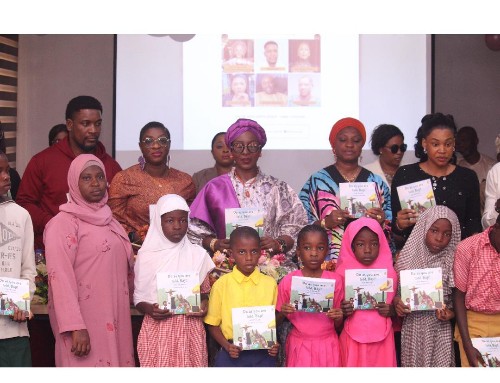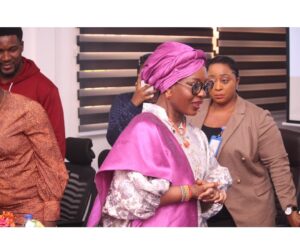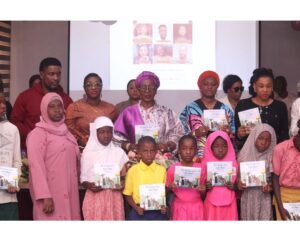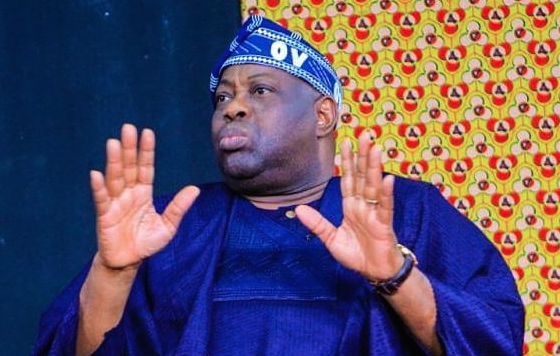- 1,000 Young Women to Gain Leadership Skills in the 2024 Workshop Series.
- GapX Continues to Drive Gender and Financial Inclusion with its Programmes.
GapX, a leading social enterprise dedicated to developing the leadership potential of young women, has announced its groundbreaking Workshop series, which aims to equip over 1,000 young women in entry and mid-level roles with practical skills needed for their career growth. The aim of the programme is to address the skills gap in preparing young women across Africa for leadership.
GapX Workshops, an empowering and transformative series of interactive sessions, will be delivered by seasoned industry experts tackling various areas relevant to women’s career development including financial planning and management, goal setting, personal branding, positioning oneself for management roles, and more. Each workshop is designed to be interactive and practical, thought-provoking, with real-life experiences shared by industry experts.
With over 2,000 young women benefitting from its programmes, GapX continues to facilitate gender and financial inclusion, delivering on its mandate to launch more women across Africa into leadership positions.
According to Oluyemisi Wole-Ojomo, Co-founder, GapX: “GapX Workshops are an extension of our past knowledge programmes. We provide support for young women in the early and mid-stage of their careers as these critical stages need more intervention to reduce career drop-off and enhance the confidence needed for leadership. We believe that with women at decision-making tables, we can achieve a more gender-inclusive world, and when we empower women to make decisions at the highest level, we position families and societies for greater prosperity and build generational wealth for all.”
GapX recently graduated the 2023 cohort of its mentorship programme, an innovative programme that combines peer-to-peer mentorship with expert-led sessions that saw over 120 mentees benefiting from the expertise of 9 experienced mentors. The results: impactful guidance, invaluable connections, a thriving community, and enhanced opportunities for the participants. Building on this proven success, GapX emerges as a leading force, offering a validated platform for collaboration, growth, and advancement for future generations of women leaders.
Christiana Aileru, GapX Programme Manager said: “We are redefining the process it takes for women to attain leadership, making it more practical and granular, so young women can tap into existing pockets of experience and networks. Our programmes are built on 4 pillars of impact which we call gaps we are bridging – knowledge gap, resource gap, opportunity gap, and support gap. We believe that if we bridge these gaps, more women will have the confidence to pursue leadership roles”.
A recent participant, Izuma Marcus, who attended one of the programmes shared: “I am so grateful to GapX for selecting me to be part of this programme and I am also grateful to my mentor for taking me as her mentee. The programme was a series of unlearning and learning. I have a changed mindset about the realities of a working environment and life in general. Her leadership and guidance have helped me to see my potential. Her wisdom, support, and encouragement have not only shaped my skills but also enriched my character.”
GapX Workshops sessions are slated to run all through 2024 with applications to each session open on a rolling basis.
GapX is a leading social enterprise dedicated to developing the leadership potential of young women. Through mentorship programs, workshops, and networking events, GapX empowers women to achieve their professional goals and break barriers in the workplace. With over 2,000 women benefiting from its knowledge-support programmes, including its peer-to-peer and expert-led mentorship and training, GapX continues to facilitate gender and financial inclusion, delivering on its mandate to launch more women across Africa into leadership positions.
For more information about GapX and its initiatives, please visit www.thegapx.com.
GapX Programme Manager, Christiana Aileru: [email protected]

 BIG STORY5 days ago
BIG STORY5 days ago
 BIG STORY3 days ago
BIG STORY3 days ago
 BIG STORY4 days ago
BIG STORY4 days ago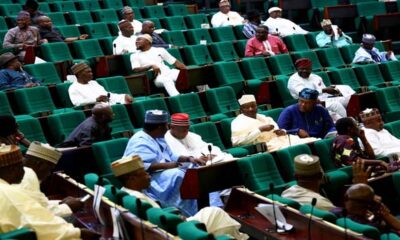
 BIG STORY4 days ago
BIG STORY4 days ago
 BIG STORY3 days ago
BIG STORY3 days ago
 BIG STORY19 hours ago
BIG STORY19 hours ago
 BIG STORY19 hours ago
BIG STORY19 hours ago
 BIG STORY18 hours ago
BIG STORY18 hours ago

















